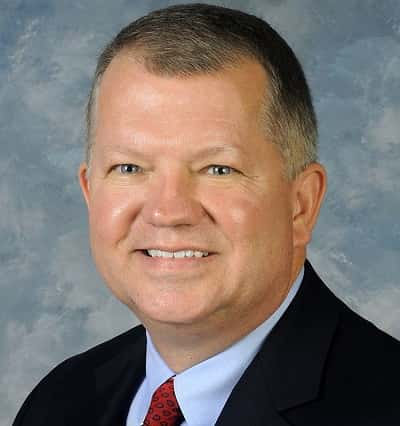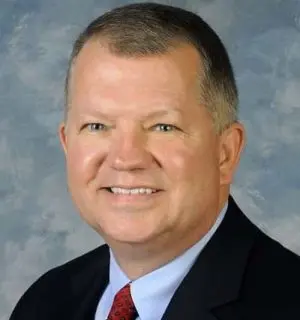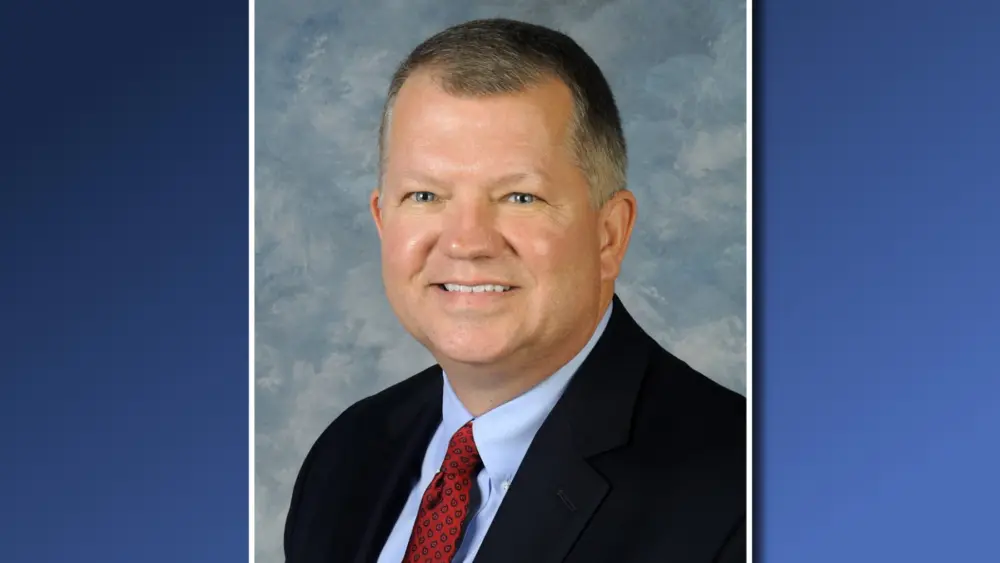 FRANKFORT – After a successful beginning to the week in the Senate, extreme weather conditions on Wednesday evening into Thursday prevented us from holding session on Thursday and Friday. The LRC offices were closed on Thursday, but were re-opened on Friday and we held a caucus meeting to discuss some remaining issues facing the final days of the 2015 session.
FRANKFORT – After a successful beginning to the week in the Senate, extreme weather conditions on Wednesday evening into Thursday prevented us from holding session on Thursday and Friday. The LRC offices were closed on Thursday, but were re-opened on Friday and we held a caucus meeting to discuss some remaining issues facing the final days of the 2015 session.
Due to the weather cancellations, both the Senate and House chambers will convene Monday, Mar. 9 – Wednesday, Mar. 11. There will be several committee meetings held over those three days as we prepare our final bills and hearings before the Governor’s veto session begins. The weather will not affect our planned sine die date of Tuesday, Mar. 24.
*On Monday, the Senate passed House Bill 152 as the first piece of legislation to be passed by both chambers in 2015. House Bill 152 has been referred to as the “telecommunications bill” and will deregulate current telephone requirements to provide more funding for internet and mobile phone expansion throughout the state.
The telecommunications bill has been a priority for the Senate over the last three years, and we commend Sen. Paul Hornback (R-Shelbyville), the perennial sponsor of this legislation in the Senate, for dedicating countless hours of hard work to see this bill through.
*House Bill 298 passed the Senate Tuesday and would authorize the issuance of $132.5 million in bonds for the construction of a new research building at the University of Kentucky. The building would house teams of scientists from different disciplines working together to reduce presentable deaths from medical disorders that disproportionately afflict Kentuckians – such as cancer, diabetes and cardiovascular disease.
In total, the new structure is expected to create 1,623 jobs, have an annual economic impact of $116.2 million, and an annual state and local tax impact of $5.6 million.
*Also on Tuesday, the House passed Senate Bill 77, which would allow for a medical order for scope of treatment in Kentucky, which would spell out a patient’s wishes for their end-of-life care. This was the first measure started in the Senate that was passed by the House, and the bill would require the state Board of Medical Licensure to create a standard form for the orders to use statewide.
*On Wednesday the House chamber passed Senate Bill 10, which would require the state to post a list of all Kentucky stroke hospitals and stroke centers online and distribute the list to local emergency services providers. The bill would also expand the types of stroke-care certification available to hospitals across the Commonwealth, building on a 2010 law that requires Kentucky to recognize certified primary stroke centers.
*The Senate passed House Bill 168 on Wednesday, which would affirm that the state’s three-tier system of regulating alcoholic beverage producers, distributors and retailers applies to beer. This legislation was subject to debate in the Senate, because it is expected to force Anheuser-Busch to sell its two Kentucky distributorships.
According to one of our senators speaking in favor of the bill, 37 other states have endorsed the three-tier system and none of those governments have given into Anheuser-Busch’s request to deregulate the beer business.
*Also on Wednesday, the House passed Senate Bill 61, which would mandate health insurers to cover the cost of follow-up procedures resulting from a colorectal cancer screening. This bill has been established to remove the barriers for colorectal cancer screening without imposing additional deductible or coinsurance costs. The bill would apply to health benefit plans issued or renewed on or after Jan. 1, 2016, should it become law.
*I had three bills pass the Senate chamber this week: Senate Bills 90, 102 and 184.
*Senate Bill 90 would lift the nuclear moratorium in Kentucky.
*Senate Bill 102, better known as “Conner’s Law,” would amend the first degree manslaughter law to include law to include intentional abuse that leads to death of the victim.
*Senate Bill 184 would address the “no jail-jailer” issue that has received much attention recently throughout the state. This legislation would bring accountability and transparency to the situation, while leaving decisions up to fiscal courts.
*I also presented Senate Bill 89, which would allow state and local governments to sell firearms to officers when the agency transitions to new firearms or when the officer retires.
This measure was reported favorably by the House Judiciary Committee. If you have any questions or comments about the issues or any other public policy issue, please call me toll-free at 1-800-372-7181. You can also review additional bills passed by the Legislature online at www.lrc.ky.gov




